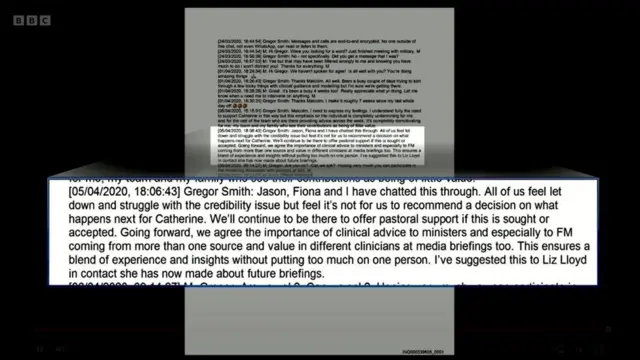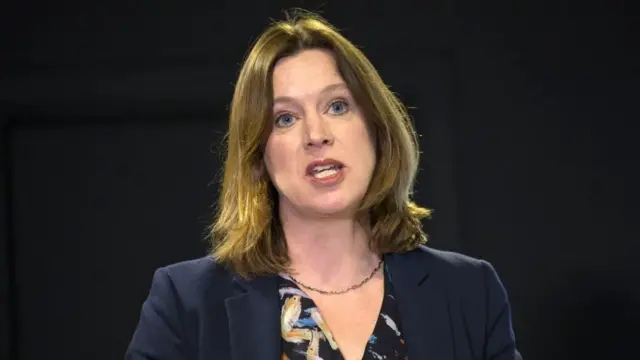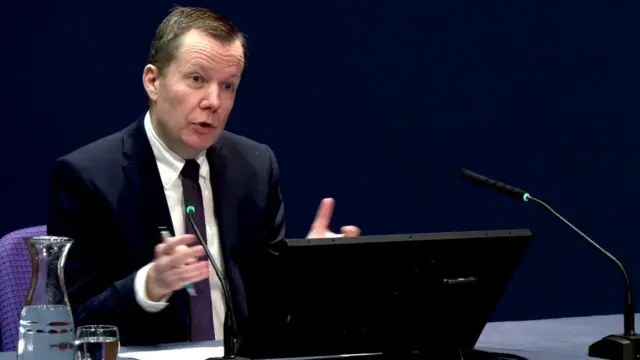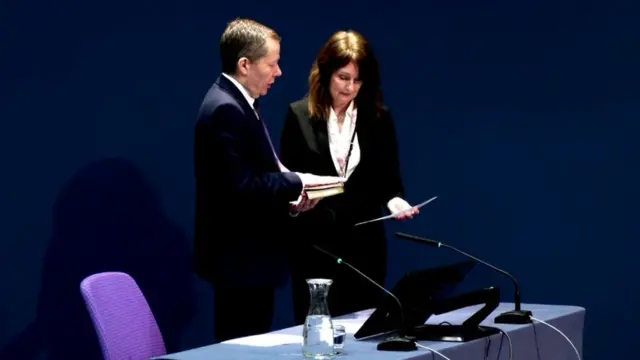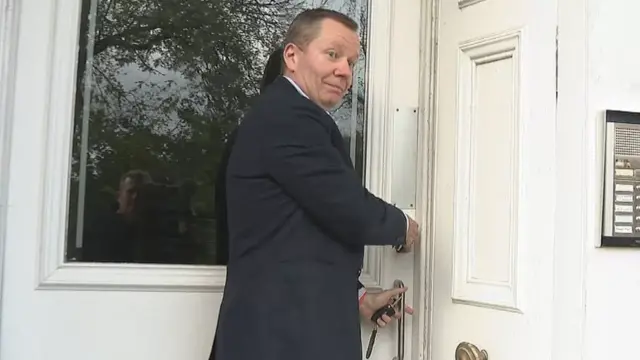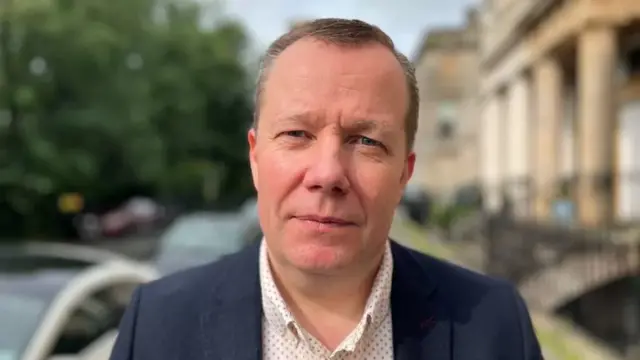Leitch denies trying to distance himself from advice responsibilitypublished at 10:42 GMT 23 January 2024
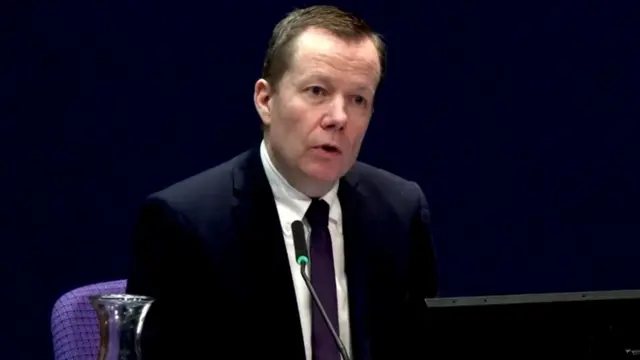
Jamie Dawson KC says: "It seems like you're trying to distance yourself from the responsibility of giving advice, would that be fair?"
"No that would be not fair at all," replies Prof Leitch.
Mr Dawson turns to advice about restrictions and asks if this was communicated to ministers.
The national clinical director said the intention was for this to go to the health minister's private office.
Mr Dawson says letters show Prof Leitch is a "key adviser" but Leitch says he wasn't the only one.
The KC puts it to to the national clinical director that he was the main voice to the first minister but Prof Leitch says there were other experts as well.
